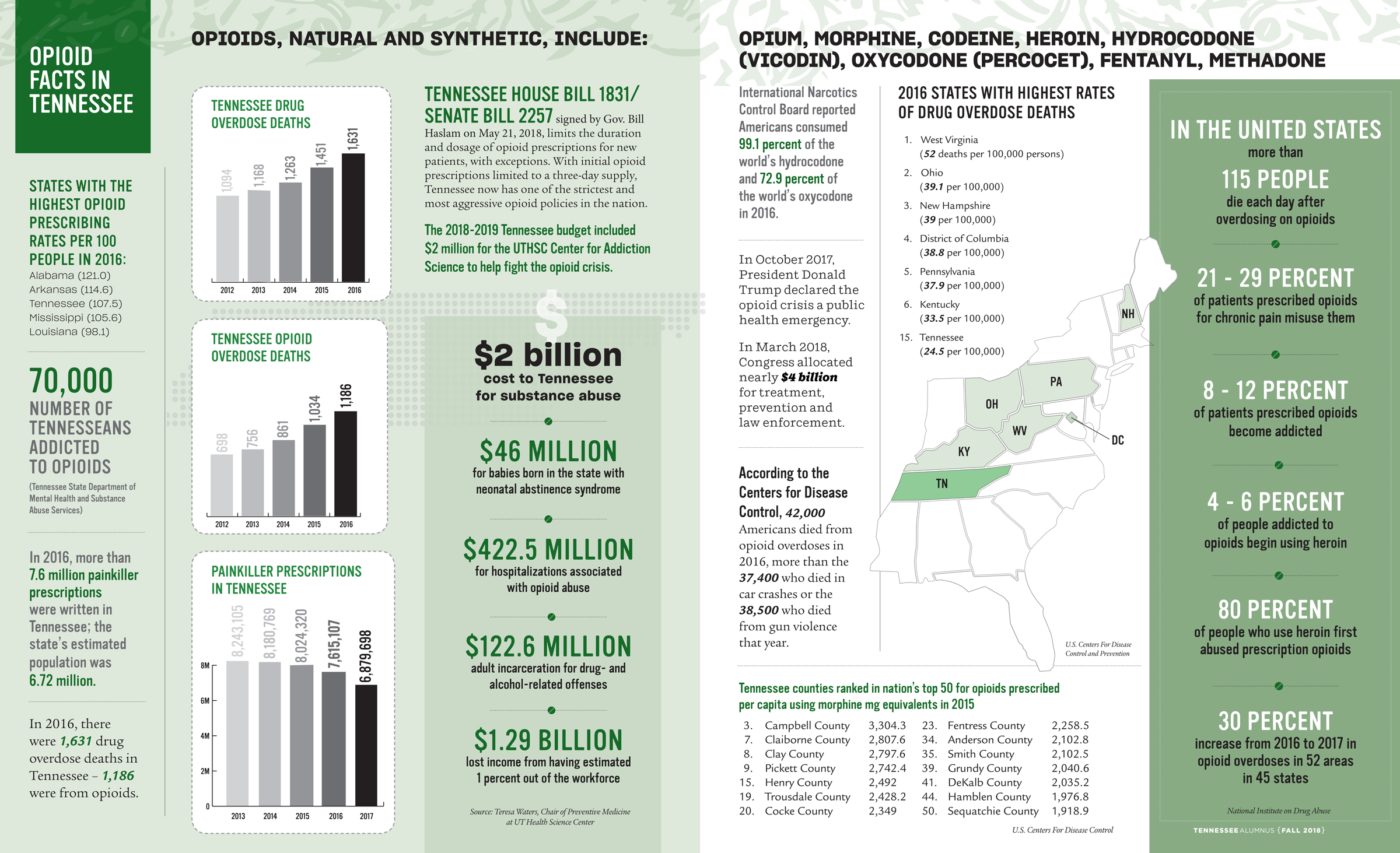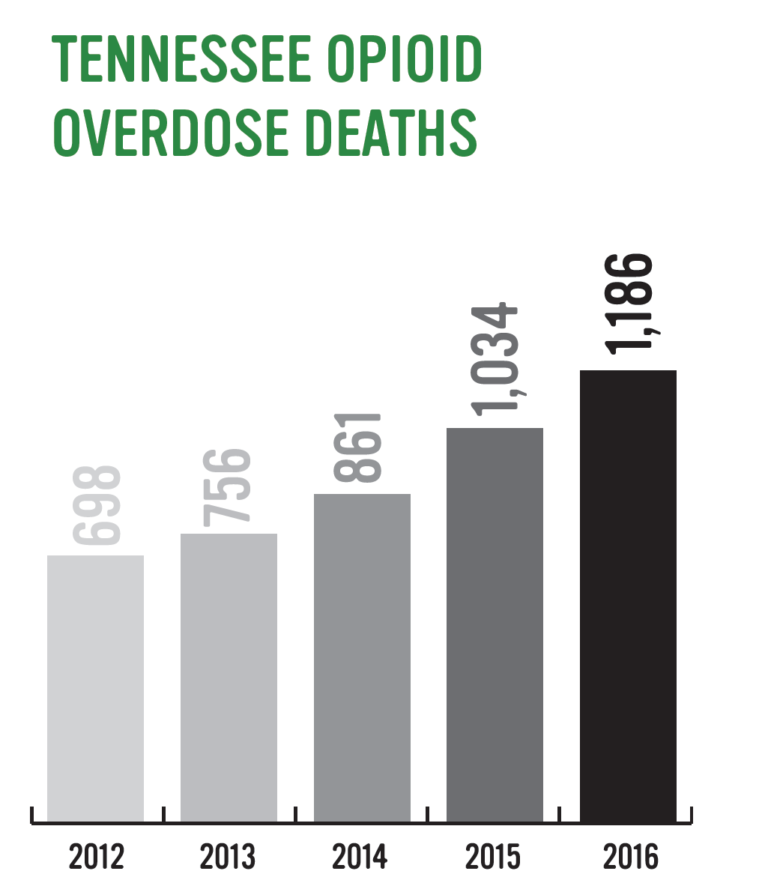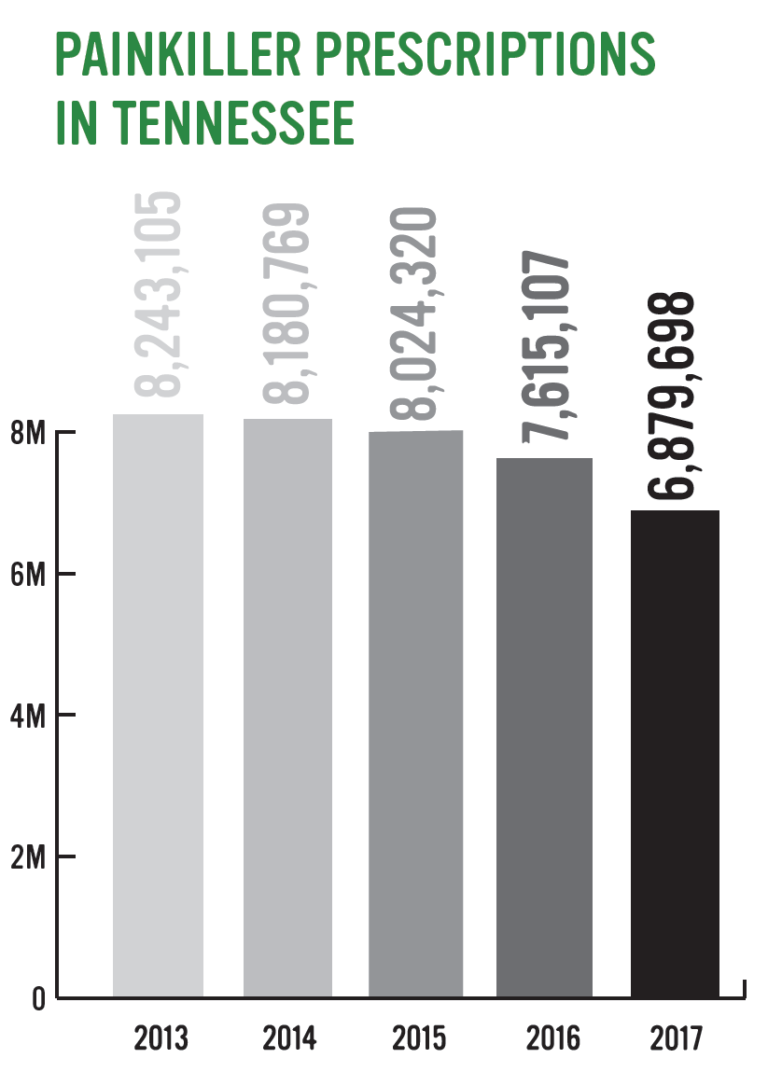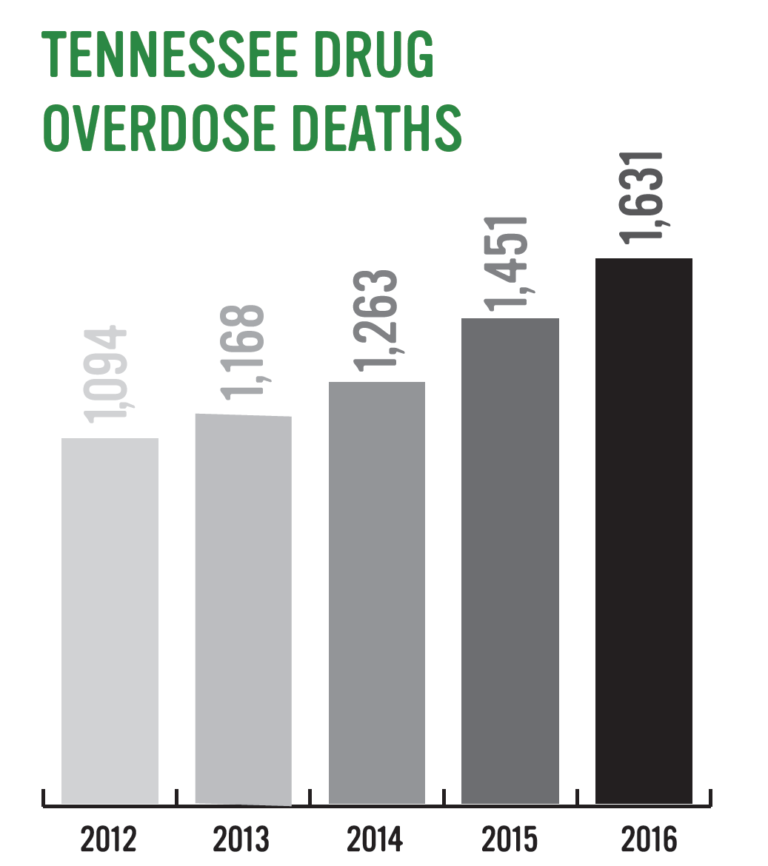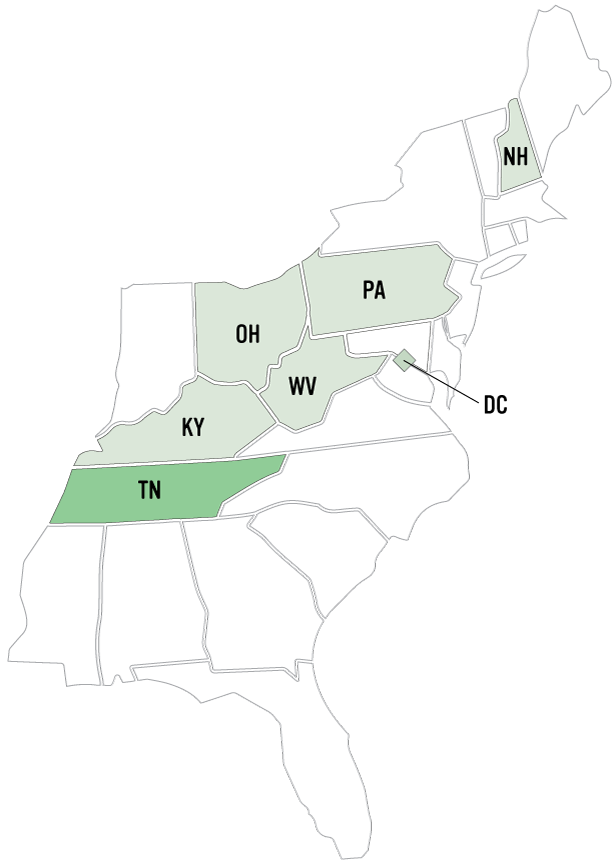Opioids, natural and synthetic, include: Opium, morphine, codeine, heroin, hydrocodone (vicodin), oxycodone (percocet), fentanyl, methadone.
Tennessee House Bill 1831/Senate Bill 2257 signed by Gov. Bill Haslam on May 21, 2018, limits the duration and dosage of opioid prescriptions for new patients, with exceptions. With initial opioid prescriptions limited to a three-day supply, Tennessee now has one of the strictest and most aggressive opioid policies in the nation.
The 2018-2019 Tennessee budget included $2 million for the UTHSC Center for Addiction Science to help fight the opioid crisis.
States with the Highest Opioid Prescribing Rates per 100 People in 2016:
Alabama (121.0)
Arkansas (114.6)
Tennessee (107.5)
Mississippi (105.6)
Louisiana (98.1)
In 2016, more than 7.6 million painkiller prescriptions were written in Tennessee; the state’s estimated population was 6.72 million.
In 2016, there were 1,631 drug overdose deaths in Tennessee – 1,186 were from opioids.
70,000
Number of Tennesseans addicted to Opioids
(Tennessee State Department of Mental Health and Substance Abuse Services)
$2 billion
cost to Tennessee for substance abuse
$46 million
for babies born in the state with neonatal abstinence syndrome
$422.5 million
for hospitalizations associated with opioid abuse
$122.6 million
adult incarceration for drug- and alcohol-related offenses
$1.29 billion
lost income from having estimated 1 percent out of the workforce
Source: Teresa Waters, Chair of Preventive Medicine at UT Health Science Center
International Narcotics Control Board reported Americans consumed 99.1 percent of the world’s hydrocodone and 72.9 percent of the world’s oxycodone in 2016.
In October 2017, President Donald Trump declared the opioid crisis a public health emergency.
In March 2018, Congress allocated nearly $4 billion for treatment, prevention and law enforcement.
According to the Centers for Disease Control, 42,000 Americans died from opioid overdoses in 2016, more than the 37,400 who died in car crashes or the 38,500 who died from gun violence that year.
| Rank | State | Rate |
|---|---|---|
| 1. | West Virginia | (52 deaths per 100,000 persons) |
| 2. | Ohio | (39.1 per 100,000) |
| 3. | New Hampshire | (39 per 100,000) |
| 4. | District of Columbia | (38.8 per 100,000) |
| 5. | Pennsylvania | (37.9 per 100,000) |
| 6. | Kentucky | (33.5 per 100,000) |
| 15. | Tennessee | (24.5 per 100,000) |
In the United States more than 115 people die each day after overdosing on opioids
of patients prescribed opioids for chronic pain misuse them
of patients prescribed opioids become addicted
of people addicted to opioids begin using heroin
of people who use heroin first abused prescription opioids
increase from 2016 to 2017 in opioid overdoses in 52 areas in 45 states
National Institute on Drug Abuse
| Rank | County | Rate |
|---|---|---|
| 3. | Campbell County | 3,304.3 |
| 7. | Claiborne County | 2,807.6 |
| 8. | Clay County | 2,797.6 |
| 9. | Pickett County | 2,742.4 |
| 15. | Henry County | 2,492 |
| 19. | Trousdale County | 2,428.2 |
| 20. | Cocke County | 2,349 |
| 23. | Fentress County | 2,258.5 |
| 34. | Anderson County | 2,102.8 |
| 35. | Smith County | 2,102.5 |
| 39. | Grundy County | 2,040.6 |
| 41. | DeKalb County | 2,035.2 |
| 44. | Hamblen County | 1,976.8 |
| 50. | Sequatchie County | 1,918.9 |
U.S. Centers For Disease Control
